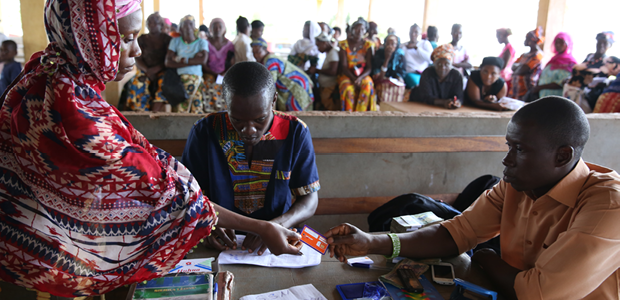Working Paper
Understanding the Relationship between Institutions and Economic Development
The paper tries to improve our understanding on the role of institutions in development by critically examining the current orthodox discourse on institutions and highlighting some of its key problems. After discussing some definitional problems, the...
Working Paper
The Swedish Model
The main characteristics of 'the Swedish model' are arguably related to the country's knowledge-intensive industry and its advanced welfare state. The purpose of this paper is to discuss the historical development of these two features of the Swedish...
Working Paper
On the Measurement of Human Well-being
Sen’s influential work on human development has led economists to explore new areas that have become increasingly important for human well-being. In particular, Sen emphasizes the importance of the ‘freedom to choose’. Freedom, however, is not always...
Blog
Five lessons from Martin Ravallion’s WIDER Annual Lecture: Direct interventions against poverty in poor places

by
James Stewart
March 2016
On 23 March researchers, policy makers, and politicians gathered at the Stockholm School of Economics (or joined online via the webcast) to hear...
Working Paper
Urban-Rural Inequality in Living Standards in Africa
In this paper we examine the relative importance of rural versus urban areas in terms of monetary poverty and seven other related living standards indicators. We present the levels of urban-rural differences for several African countries for which we...
Working Paper
Conceptual and Measurement Issues in Poverty Analysis
The objective of this paper is to review a number of issues related to poverty, while taking stock of the ongoing research. Most of the remaining unresolved issues in poverty analysis are related directly or indirectly to the dynamics of poverty...
Blog
What Can Developing Countries Learn From Finland’s Industrial Transformation?
by
Markus Jäntti, Juhana Vartiainen
October 2009
Markus Jäntti and Juhana Vartiainen Finland is an example of a late but successful state-led industrialization that was carried out rapidly. The...
Working Paper
Spatial Inequality and Development in Central Asia
This paper focuses on inequality in living standards across oblasts and regions within Kazakhstan, the Kyrgyz Republic, Tajikistan, Turkmenistan and Uzbekistan. Regional inequality is an important area of research and policy development. Inequality...
Working Paper
Well-being and the Complexity of Poverty
This investigation studies human well-being from a subjective well-being approach. On the basis of a Mexican database the investigation shows that there is a weak relationship between subjective well-being and indicators of well-being such as income...
Working Paper
Building a conservative welfare state in Botswana
Botswana’s welfare state is both a parsimonious laggard in comparison with some other middle-income countries in Africa (such as Mauritius and South Africa) and extensive (in comparison with its low-income neighbours to the north and east). Coverage...
Working Paper
The Finnish Developmental State and its Growth Regime
This paper reviews Finland’s growth strategy in the postwar decades. Finland was able to initiate an impressive mobilization of resources during this period, reflected mostly in a high rate of capital accumulation for manufacturing industries. This...
Working Paper
The Danish Model and the Globalizing Learning Economy
Although Denmark shares with the other four Nordic countries certain attributes, such as pragmatic protestant religion, small and homogenous population, strong social democratic parties and ambitious welfare states, it also has its own...
Journal Article
La Relación entre las Instituciones y el Desarrollo Económico
This paper discusses how the theory on the role of institutions in development can be improved, by critically examining the current orthodox discourse on institutions. To understand the relationship between institutions and economic development, it...

 Join the network
Join the network





